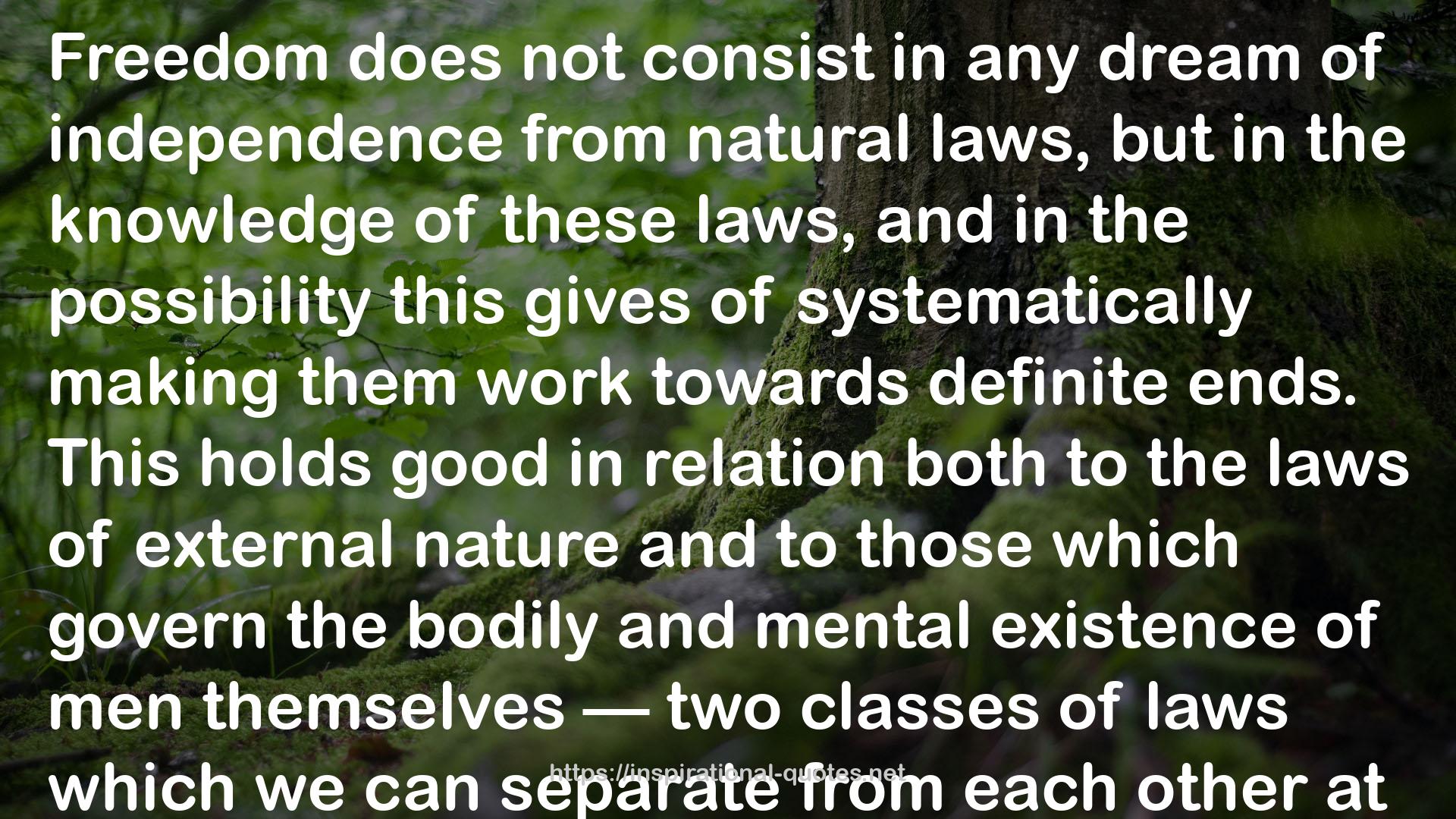" Freedom does not consist in any dream of independence from natural laws, but in the knowledge of these laws, and in the possibility this gives of systematically making them work towards definite ends. This holds good in relation both to the laws of external nature and to those which govern the bodily and mental existence of men themselves — two classes of laws which we can separate from each other at most only in thought but not in reality. Freedom of the will therefore means nothing but the capacity to make decisions with knowledge of the subject. Therefore the freer a man’s judgment is in relation to a definite question, the greater is the necessity with which the content of this judgment will be determined; while the uncertainty, founded on ignorance, which seems to make an arbitrary choice among many different and conflicting possible decisions, shows precisely by this that it is not free, that it is controlled by the very object it should itself control. Freedom therefore consists in the control over ourselves and over external nature, a control founded on knowledge of natural necessity; it is therefore necessarily a product of historical development. The first men who separated themselves from the animal kingdom were in all essentials as unfree as the animals themselves, but each step forward in the field of culture was a step towards freedom. "
― Friedrich Engels , Anti-Dühring: Herr Eugen Dühring's Revolution in Science
